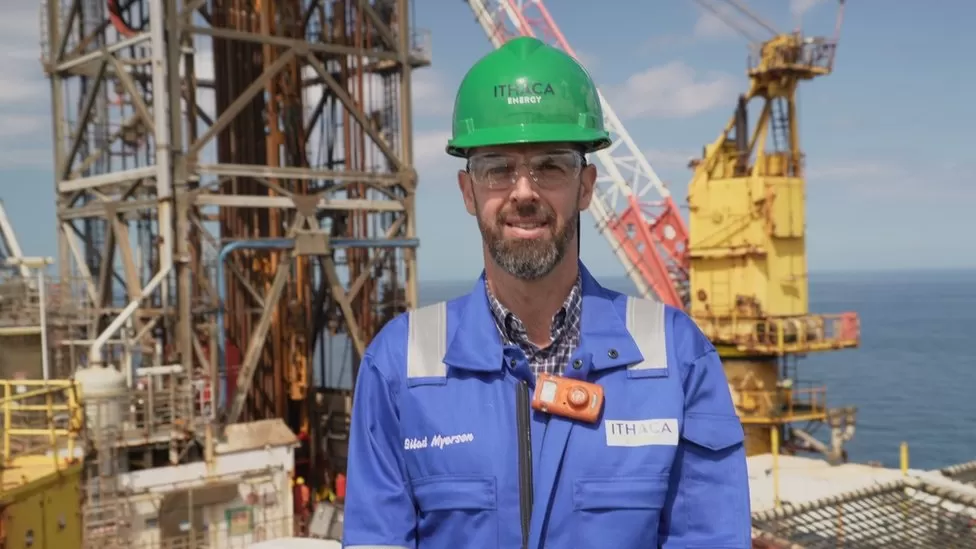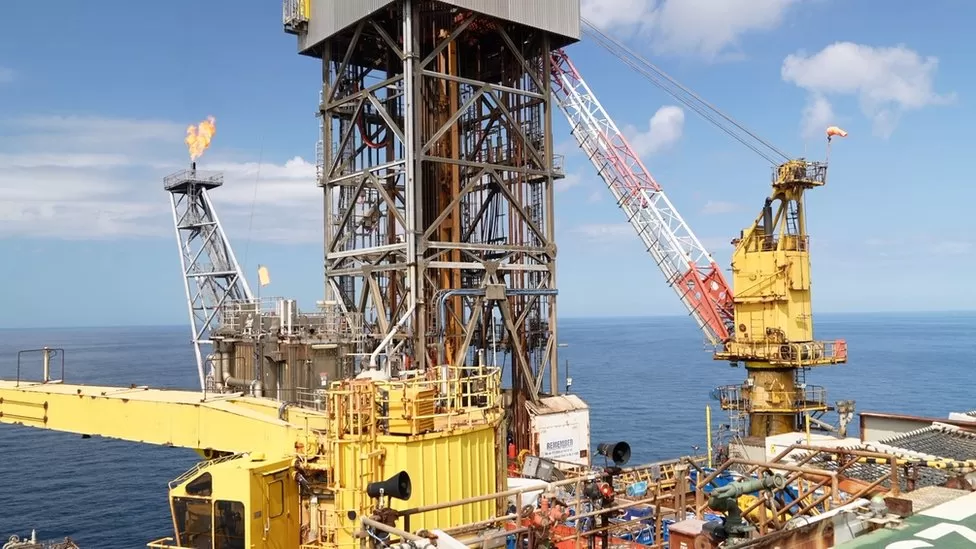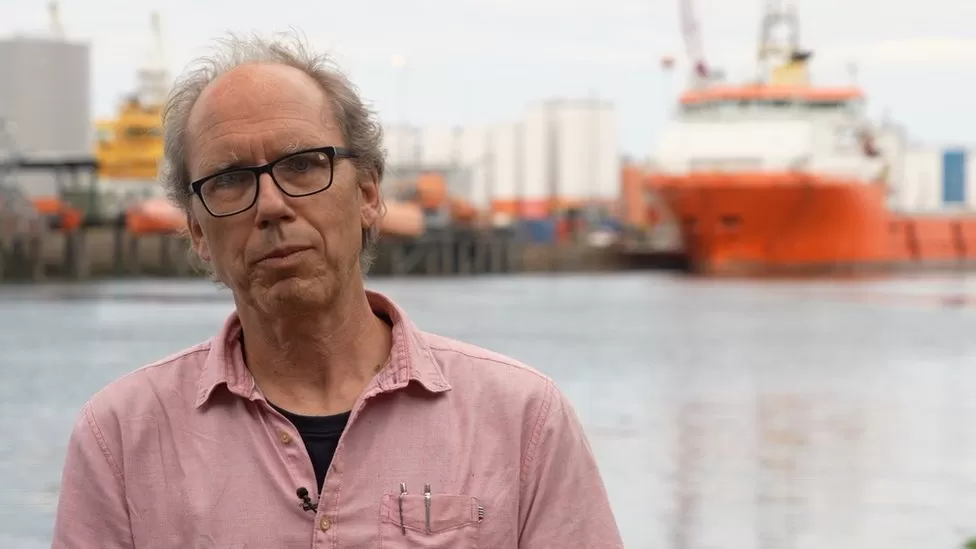The UK is at risk of being “starved” of North Sea energy leaving it reliant on imports, a major oil and gas producer has told the BBC. Ithaca Energy said Labour’s pledge to ban new oil and gas exploration in the North Sea and current taxation policy was “spooking” investors. Ithaca is almost entirely invested in North Sea oil and gas. Environmental groups say any new oil and gas fields in the region would take the UK over its carbon budget limits. Last week, Labour leader Sir Keir Starmer said a Labour government would not grant licences to explore new fields in the North Sea, saying it would be a “historic mistake” to wait until UK oil and gas runs out. But Gilad Myerson, executive chairman of Ithaca, said the move would threaten the UK’s energy security.

“By a new government imagining they’ll be able to stop licences and oil development in the UK, ultimately what that means is that they’ll be starving the UK of energy, and it will become very dependent on energy from abroad,” he said. North Sea oil and gas is traded on international markets and the prices are set globally, but Mr Myerson insists much of it is used domestically, and it therefore has a lower carbon footprint than energy imported from abroad. “Most of the hydrocarbons in the UK are developed and are produced for the UK market. Some of the oil will go to refineries abroad, but will ultimately make its way back to the UK,” he said.
A Labour spokesperson said that while the party would not issue any new licences, it would “continue to use existing fields in the North Sea for decades to come”. “The best way to bring down bills, increase our security and sovereignty, and create good jobs is to get on with a sprint for clean energy and we welcome all businesses being part of that.”
Politicians ‘spooking’ investors
Ithaca, which has stakes in six of the 10 largest oil and gas fields in the North Sea, is also worried about the current government’s approach to taxation. Last May, the government introduced a windfall tax on energy company profits, known as the Energy Profits Levy. It was set at 25%, but was later increased to 35% in the Autumn Statement, taking the overall tax rate on companies in the sector to 75%.
Earlier this month, the Treasury announced the windfall tax would stay in place until 2028 but would be scrapped if oil and gas prices fell closer to historical levels for a sustained period. But Mr Myerson said the chances of oil and gas prices falling sufficiently to trigger the elimination of the tax were “extremely low” as supply and demand had changed after the Russian invasion of Ukraine. “At the moment, the taxation regime is changing constantly and it’s very difficult to invest huge amounts of capital when you don’t know what type of return you’ll be getting,” Mr Myerson said, adding that Ithaca was considering investing elsewhere in Europe and the US, whom he said were “more supportive” to oil and gas.

He said the company was still committed to investing in two of the biggest undeveloped oil fields in the North Sea, the controversial Cambo and Rosebank fields. Rosebank has the potential to produce 500 million barrels of oil, and could be approved by the government within weeks. But he said they would only be developed if it made financial sense, and said political announcements from all sides had been unhelpful. “Politicians keep making statements which spook investors. “They are saying they do want hydrocarbons, then they say that they don’t want hydrocarbons. When it comes to a project like Cambo and Rosebank, you need to make sure that the environment is stable because this is a project that will last for 10 years.”
A spokesperson for the Treasury said it was “right that we recover excess profits resulting from Putin’s war” and that the money raised from the windfall tax had been used to help people with their energy bills. “But we also want the oil and gas sector to invest in British jobs and our energy security. That’s why our new Energy Security Investment Mechanism is designed to give investors the confidence to keep investing in domestic oil and gas production, based on historic prices.”
Energy security
Environmental groups say that claims the industry would shut down overnight with the end of new North Sea licences are scare stories and that even one new oil and gas field in the region would push the UK over its carbon budget limits. Erik Dalhuijsen, the founder of Aberdeen Climate Action, is critical of both the government and Labour policies on the future of the North Sea.
“There is only one decision that can be made and that is that new exploration needs to be stopped immediately,” he told the BBC. “There is no room in our carbon budget for additional hydrocarbons. There is already enough hydrocarbons in the proven reserves to blow the climate change carbon budget several times over. “The real answer to energy security is to generate your own homegrown energy, which is renewables. The Ukraine situation is evidence that fossil fuels are not the secure energy source that you need.”

The oil and gas sector supports 200,000 UK jobs, according to trade body Offshore Energies UK. One of Mr Myerson’s biggest concerns is around job losses if the North Sea sees no further investment. He believes it is unrealistic to expect someone working on an oil platform to be able to install a windfarm as they would not have the technical expertise. However, Friends of the Earth and others argue that with the right support and investment, the renewable energy sector could support three times as many jobs as oil and gas.
Mr Dalhuijsen, who previously worked as a petroleum engineer in the oil and gas sector, is himself looking to retrain to retrofit buildings to make them more energy-efficient. My Myerson agrees that wind and solar are important technologies and Ithaca is looking to invest in them as well, but says: “It’s impossible to just turn off a switch and imagine we can live in a world without hydrocarbons.”
![]()





